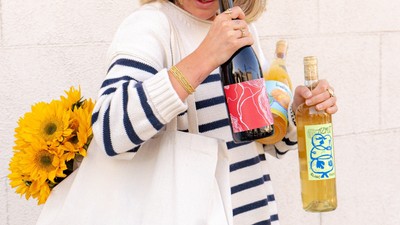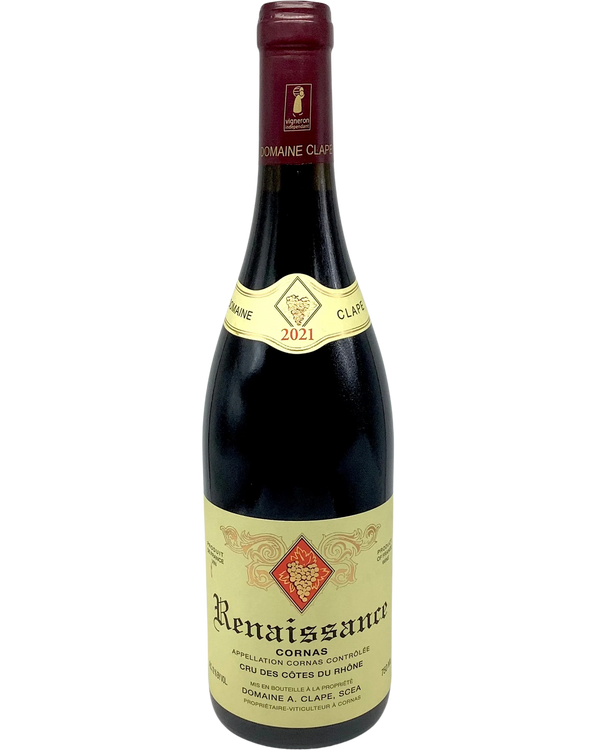Domaine Auguste Clape Renaissance Cornas 2021 750ml
"The 2021 Cornas Renaissance checks in at 12.3% alcohol and is a charming, forward effort offering medium-bodied aromas and flavors of ripe red and blue fruits, pepper, and sappy herbs. It's balanced and has ripe tannins as well as the more focused texture of the vintage. Give it a year or two and enjoy over the following decade. Drinking Window 2025-2036" 91 Points Jeb Dunnuck
"The medium-bodied 2021 Cornas Renaissance was bottled on the 24th of October 2023, just one week prior to my visit. Orange blossom and violet aromatics provide a floral lift, complemented by herbaceous elements, red plum and pencil shavings. Framed by refreshing acidity and neatly structured, I recommend readers give this complex Cornas two more years in bottle. Drinking Window 2024-2035" 91 Points Vinous
Importer Notes:
In the world of wine, there are many good winegrowers. However, there are only a very select few who are truly great, and Auguste Clape will go down in history as one of the greats. A proud and uncompromising pioneer of fine winemaking in the northern Rhône, his Syrahs from the cru of Cornas have earned their place among the most celebrated wines of France. The Clapes have been vignerons for many generations, but the infamous grower strikes of 1906 and 1907 forced Auguste’s grandfather out of the Languedoc and into the northern Rhône to start anew from practically nothing. The Clapes rebuilt their fortunes, terrace by terrace, along the steep, western slopes of the Rhône River. For many years, the majority of growers in Cornas sold their fruit to négociants. Auguste was the first to bottle his own wine, which eventually paved the way for such contemporary superstars as Thierry Allemand. Without pretense or fanfare, Auguste, the former mayor of Cornas, was a stately picture of grace and magnanimity—a no-nonsense wise man who never rested on his laurels and sought to better himself and his wines each year until his passing in 2018 at the age of 93. Today, his son, Pierre-Marie, and grandson, Olivier, carry on his legacy with honor and integrity.
Though the Clapes farm only eight hectares, the challenge presented by the rough, tightly stacked terrace vineyards of Cornas is largely enough to handle by anybody’s standards. The dicey precipices make using any machinery in the vineyards impossible. All work must be done by hand. There are no official rules to their viticultural methodology—they work the old-fashioned way, by instinct, feeling, and common sense.



